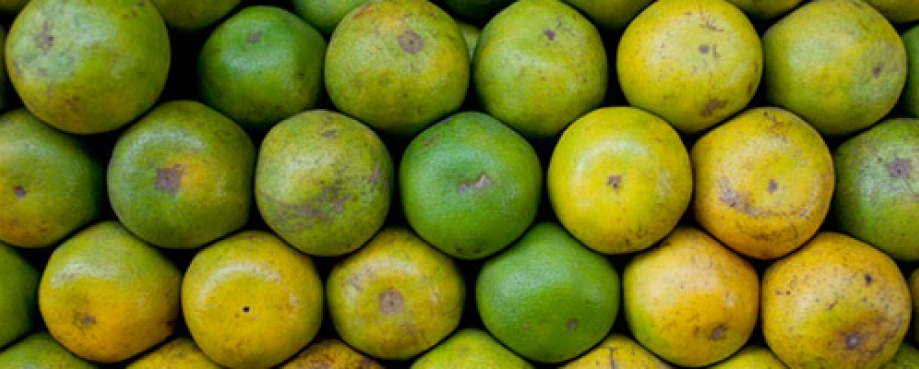
We often hear that South Africa is going through a process of transformation. What does that mean for the million people - most of them women - working on its farms? Are things really changing, and what new initiatives are underway to tackle the many challenges workers' still face in the agricultural sector?
I recently met Kathy O'Grady of the South African Fresh Produce Exporters Forum (FPEF) and Teresa Jonkers, a supervisor in charge of quality control at a fruit packhouse in the Western Cape.
Teresa had won a prize for being the best trainee on FPEF's career development course for women, aptly named ‘Top of the Class'. Tesco, which sponsors the course, had invited Teresa to the UK to see the other end of the supply chain as part of her prize.
I was curious about the course, as well as Kathy and Teresa's views on the general situation for farm workers in South Africa. Here's what I found out.
What are the main issues facing farm workers in South Africa today?
Kathy: Although many challenges remain there has been an improvement in the working and living conditions of farm workers over the past years. Standards are set by our own laws and also international and local company codes.
Training and skills development on farms is a priority - for example, farm workers must understand their rights and responsibilities when it comes to health and safety and other issues on the farm. The export industry sets high standards for fresh fruit entering international markets, so a skilled workforce also benefits the industry.
Can you say something about the gender dimensions of employment?
Kathy:In the past women were tied to their husbands' employment and housing. Over the past years there has been a shift from the traditional paternalistic order and this has enabled women to enter into employment and housing contracts in their own right. But women remain in precarious employment, making up the majority of the casual workforce.
Although things are changing there is still a divide between what has traditionally been considered ‘men's' work and ‘women's' work on farms
Theresa:That's right - it's only men who drive the fork-lifts and work with pallets, while women do the pack house work.
Tell me about the benefits of the course.
Theresa: For me, it was a great experience. I didn't have any self-confidence before. For example, I didn't feel able to make presentations to groups of people. I only ever wanted so speak to people one-to one. Now I am confident to do that. Through the course I also learned how to communicate, how to respect people, how to work together as a group.
I also understand much more about diversity now. For example there are a lot of Xhosa speaking people in my company, but job application forms are only in English and Afrikaans, which they don't understand. After taking the course I asked the management to translate the forms into Xhosa, so people can understand what's in the form.
Kathy: The value of the ‘Top of the Class' course lies in its industry specific focus as well as the methodology used throughout the course - it has a strong self-development component, and what Teresa says matches what we see and hear from other students - they go back to their work with a whole different picture of their role within the fresh fruit value chain, an understanding of their rights and the importance of their work, not to mention more motivation and initiative.
The kind of discussion that is stimulated is unbelievable too - there are lots of discussions on issues of equity and diversity for example, where people have the opportunity to talk about things that never even crossed their mind before.
For example, we look at derogatory terms that are often used and explain why they might be divisive.
Another great thing about the course is that the managers really see the benefits too. They were really involved in this course and supported the participants throughout. Many have asked for advice on how they can continue with the process on the farm to make sure the development that was started through the course is sustained. It really is a win-win.
One of the things that struck me about our conversation - apart from the privileged insight it allowed me into Teresa's own personal transformation - was realising the parallels with our own Supervisor Training Programme. This digs deep into the highly sensitive issues of sexual harassment and discrimination and also aims to build supervisors' management skills and confidence. We're about to start work with the Wine and Agricultural Industry Ethical Trade Association (WIETA) to roll out this training across the South Africa as part of a big Comic Relief-funded grant. Ultimately we hope to impact 5,000 South African workers.
These new initiatives may be small steps in the face of huge challenges, but hopefully they will demonstrate the effectiveness of indepth, hands-on training - for workers, supervisors and managers alike - as a sustainable way of delivering real change for workers.
